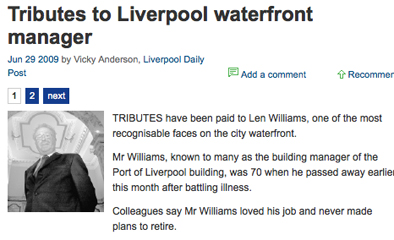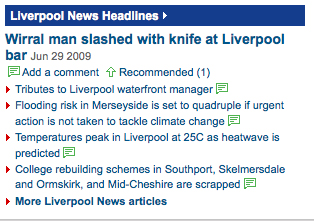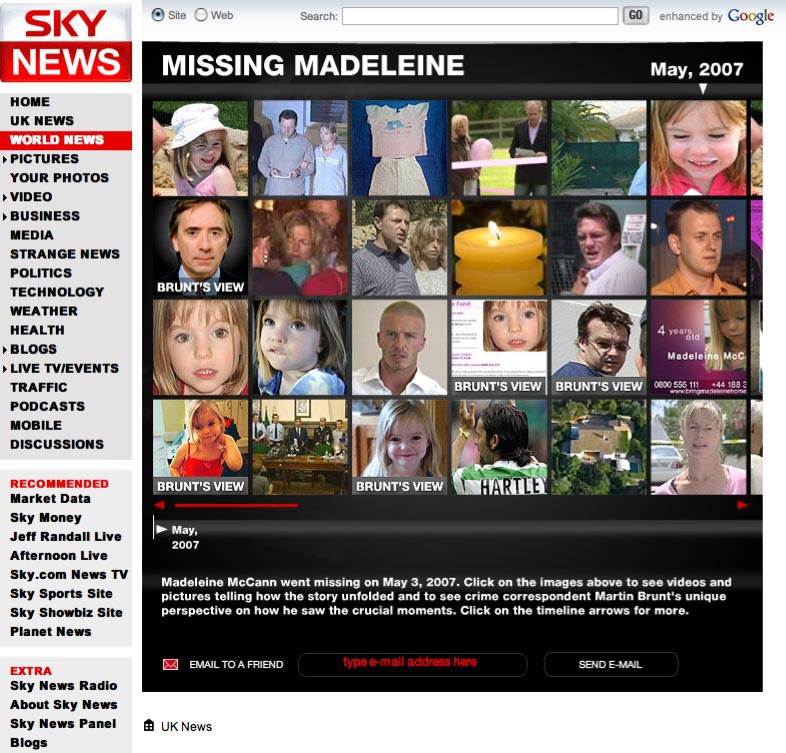It’s been going on for a year, but the Culture, Media and Sport Select Committee has finally published its report into press standards, privacy and libel in the UK.
You can read the 169-page report in full below, but we’ve highlighted some of the most interesting points in the report in this post.
Background:
The committee’s hearings and subsequent report cover a lot of ground: self-regulation of the press; libel law in the UK; privacy and the press – in particular the News of the World and Max Mosley; standards of journalism – in particular in relation to the reporting of suicides in Bridgend and the Madeleine McCann case; and allegations of phone hacking at News of the World.
In the committee’s own words:
This report is the product of the longest, most complex and wide-ranging inquiry this committee has undertaken. Our aim has been to arrive at recommendations that, if implemented, would help to restore the delicate balances associated with the freedom of the press. Individual proposals we make will have their critics – that is inevitable – but we are convinced that, taken together, our recommendations represent a constructive way forward for a free and healthy UK press in the years to come.
Culture, Media and Sport Select Committee report into press standards, privacy and libel
Page guide and key quotes:
- p10: the questions/issues that provoked the inquiry by the committee are set out.
- p18: recommendation for “a fast-track appeal system where interim injunctions are concerned, in order to minimise the impact of delay on the media and the costs of a case, while at the same time taking account of the entitlement of the individual claimant seeking the protection of the courts”.
- p18: report says Lord Chancellor, Lord Chief Justice and the courts should collect data on number of injunctions refused or granted and the impact of Section 12 of the Human Rights Act on interim injunctions.
- p23: On Max Mosley and the News of the World: “We found the News of the World editor’s attempts to justify the Max Mosley story on ‘public interest’ grounds wholly unpersuasive, although we have no doubt the public was interested in it.”
- p27: Focus on Justice Eady “shaping” UK privacy law is “misplaced”.
- p31: Recommendations for the PCC to include guidance to newspapers on pre-notification.
- p33: On Trafigura/Carter-Ruck and reporting parliamentary proceedings.
- p40: Defendants in libel cases should still be required to prove the truth of their allegations, says the report.
- p45: On the cost and difficulties of mounting a Reynolds Defence and whether this should be put on a statutory footing.
- p54-55: The committee asks for better data collection on cases of ‘libel tourism’.
- p59: On the single-publication rule and newspaper archives: “In order to balance these competing concerns, we recommend that the government should introduce a one year limitation period on actions brought in respect of publications on the internet.”
- p72-76: On Conditional Fee Arrangements (CFAs) and After The Event Insurance (ATE) in defamation cases.
- p82: Recommendations for better headline writing to improve press standards.
- p91: Criticism of the press and the PCC for the handling of the Madeleine McCann case: “The newspaper industry’s assertion that the McCann case is a one-off event shows that it is in denial about the scale and gravity of what went wrong, and about the need to learn from those mistakes. In any other industry suffering such a collective breakdown – as for example in the
banking sector now – any regulator worth its salt would have instigated an enquiry. The
press, indeed, would have been clamouring for it to do so. It is an indictment on the
PCC’s record, that it signally failed to do so.” - p95-6: On moderating comments on websites and user-generated material: “The Codebook [upheld by the Press Complaints Commission] should be amended to include a specific responsibility to moderate websites and take down offensive comments, without the need for a prior complaint. We also believe the PCC should be proactive in monitoring adherence, which could easily be done by periodic sampling of newspaper websites, to maintain standards.”
- p101-3: On NOTW and phone hacking: “It is likely that the number of victims of illegal phone-hacking by Glenn Mulcaire will never be known.”
- p114: Guardian articles on phone hacking did contain new evidence, but committee has heard now evidence that such practices are still ongoing.
- p121: On the PCC: “The powers of the PCC must be enhanced, as it is toothless compared to other regulators.”
- p123-5: Recommendations for a more independent PCC.
- p126: Peter Hill’s resignation from the PCC.
- p128: Criticism for how the PCC reports statistics of complaints it receives: “In particular, contacts from members of the public which are not followed up with the appropriate documentation should not be considered as true complaints.”
- p129: A new system for “due prominence” of corrections and apologies by newspapers?
- p130: Proposals for the PCC to have the power of financial sanctions.
In-depth coverage on Journalism.co.uk:
- CMS Report: Government urged to cut ‘enormous cost of libel cases’ in UK
- CMS Report: PCC should be renamed and have power to fine
- CMS Report: Committee condemns ‘collective amnesia’ at News International over phone hacking
- Solicitor Mark Lewis considering legal action against PCC
- CMS report: No case for a general privacy law



